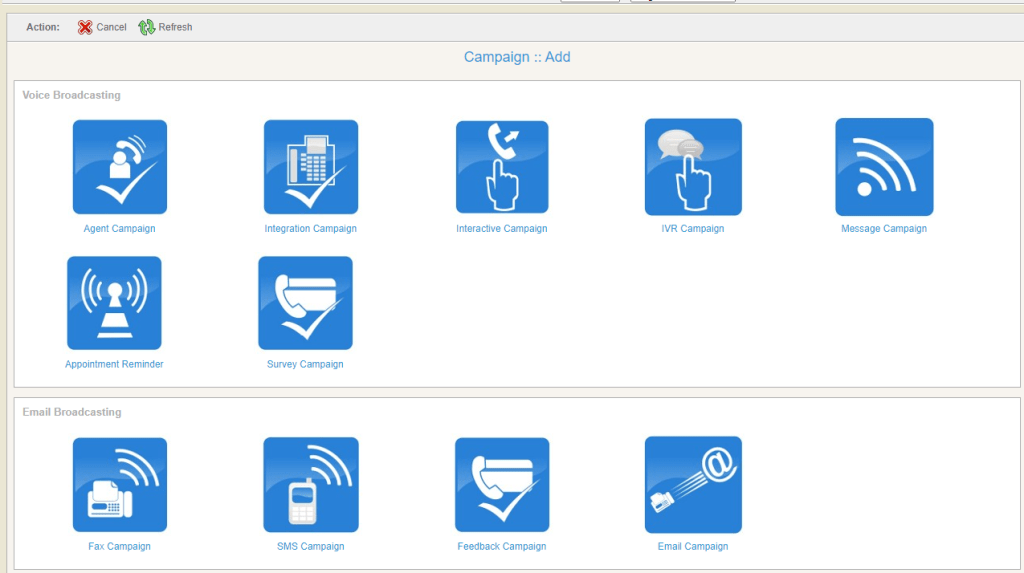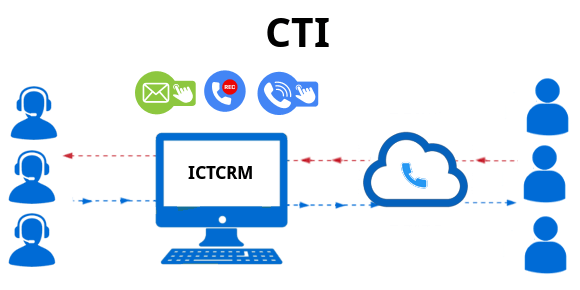In today’s competitive business environment, distinguishing oneself from competitors is essential, and enhancing customer engagement is a key strategy to achieve this. Customer engagement entails building strong connections with customers and ensuring positive experiences throughout their interactions with the business.
One highly effective approach to enhancing customer engagement is utilizing Unified Communication CRM (UC CRM). UC CRM is a software solution that integrates unified communications (UC) with customer relationship management (CRM) capabilities. By consolidating these functionalities into a single platform, UC CRM provides businesses with a centralized system for managing customer interactions across phone calls, emails, and chats.
UC CRM offers numerous benefits to businesses aiming to improve customer engagement. Firstly, it enhances customer service by enabling seamless communication and swift issue resolution. By integrating phone, email, and chat within a unified platform, UC CRM streamlines communication channels, ensuring efficient and effective customer support.
Understanding Unified CRM:
Unified Customer Relationship Management (Unified CRM) integrates various communication channels and customer data within a single CRM platform. Its objective is to provide a cohesive view of customer interactions, enabling businesses to deliver personalized experiences and streamline their customer relationship management processes.
Unified CRM consolidates communication channels such as voice, email, chat, and social media into a centralized system. This ensures consistent and efficient communication with customers across multiple touchpoints, resulting in a seamless customer experience. Interactions and data from different channels are captured and managed cohesively within the unified platform.
Key elements of Unified CRM include:
Multichannel Communication: Unified CRM enables businesses to engage with customers through their preferred channels, supporting voice calls, emails, instant messaging, social media interactions, and more. Customers can choose the most convenient channel, while businesses respond consistently across all channels.

Customer Data Integration: Unified CRM integrates customer data from various sources, such as contact information, purchase history, communication logs, support tickets, and social media interactions. This unified customer profile offers a holistic understanding of each customer, enabling businesses to personalize interactions and deliver targeted marketing messages.
Cross-Channel Interaction Tracking: Unified CRM tracks and records customer interactions across different channels, capturing and storing communication history, customer preferences, and relevant data. This enables agents to provide a more personalized experience by accessing context-rich conversations.
Workflow Automation: Unified CRM automates routine tasks and processes, such as data entry, call logging, and follow-up activities. This automation reduces manual efforts, minimizes errors, and enhances overall efficiency, allowing businesses to focus on value-added activities.
In summary, Unified CRM enhances customer service by enabling businesses to interact effectively with customers across various channels. It consolidates customer data, tracks interactions, and automates workflows, leading to improved customer satisfaction, loyalty, and retention.

Enhancing customer service offers numerous benefits, including:
- Increased Customer Satisfaction: Customers who receive excellent service are more likely to be satisfied with their purchases and continue doing business with the company.
- Improved Customer Loyalty: Satisfied customers are more likely to become loyal patrons, leading to repeat business over time.
- Reduced Customer Churn: Poor customer service often leads to customers switching to competitors.
- Increased Sales: Good customer service can boost sales by encouraging repeat purchases and referrals.
- Improved Brand Reputation: A strong reputation for customer service can attract new customers and strengthen the brand.
Effective ways to enhance customer service include:
- Providing Prompt and Accurate Responses: Ensuring timely and accurate responses through 24/7 support or automated systems like chatbots.
- Being Knowledgeable and Helpful: Customer service representatives should be well-versed in the company’s products or services and able to provide clear and concise answers.
- Being Friendly and Courteous: Maintaining a friendly and courteous demeanor with all customers, regardless of their attitude or issue.
- Going the Extra Mile: Sometimes, small gestures like offering refunds or replacements for defective products, or simply listening to customer complaints and resolving them, can make a significant difference.
Streamlined Communication and Collaboration:
Effective internal communication and collaboration are crucial for business success. Unified Communication CRM (UC CRM) enables seamless communication among teams, departments, and stakeholders. Team members can engage in real-time communication through voice, video, and instant messaging, fostering enhanced collaboration, expediting decision-making processes, and improving overall operational efficiency.
Improved Sales Performance:
UC CRM optimizes sales processes and enhances performance. Sales teams can leverage integrated communication channels to effectively engage with prospects, nurture leads, and close deals. With a unified view of customer interactions and access to historical data, sales representatives can tailor their approach and provide personalized solutions, boosting conversion rates. Sales managers can track activities, measure performance, and provide timely coaching and support.
Enhanced Productivity and Efficiency:
Integrating unified communications and CRM simplifies and automates tasks, improving productivity and efficiency. Automated call logging and data synchronization eliminate manual data entry, saving time. Seamless integration with other business systems further streamlines processes and reduces duplication of effort, enabling employees to focus on high-value activities.
Data-Driven Insights and Decision-Making:
UC CRM generates valuable data for actionable insights and informed decision-making. By analyzing customer interactions, sentiment analysis, and historical data, businesses can identify patterns and trends, optimize marketing campaigns, and enhance strategies. Real-time analytics and reporting provide up-to-date performance metrics, enabling prompt data-driven decisions.
Seamless Integration and Scalability:
UC CRM integrates seamlessly with existing business systems, ensuring data consistency and eliminating information silos. This provides a holistic view of customer interactions across channels. Additionally, UC CRM solutions are scalable, allowing businesses to adapt and grow without significant disruptions.
Security and Compliance:
Data security and compliance are paramount concerns. UC CRM solutions offer robust security measures to protect customer information and ensure regulatory compliance. Features like encryption, authentication, access controls, and secure cloud infrastructure safeguard data. Compliance with standards like GDPR or CCPA ensures businesses adhere to legal requirements and maintain customer trust.
Conclusion:
Unified CRM is a powerful tool that enhances customer service and drives business success. By integrating various communication channels and consolidating customer data, businesses can deliver personalized interactions, provide seamless omnichannel support, and resolve issues more efficiently. Unified CRM empowers representatives with real-time access to customer information, enabling exceptional service and quick issue resolution. Workflow automation and self-service capabilities streamline processes and improve efficiency. Proactive support through data insights allows businesses to anticipate customer needs and address potential issues. Ultimately, unified CRM strengthens customer service, fosters loyalty, and contributes to business success. Embracing unified CRM unlocks the full potential of customer relationships, providing a competitive edge in today’s dynamic market.
